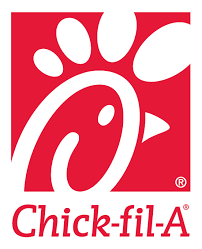Franchise Owner: Key Insights, Definitions & Examples
A franchise is a business model where an individual (franchisee) operates under the branding, systems, and support of an established company (franchisor). This partnership offers franchisees proven guidance, training, and brand recognition, balancing independence with structured success.

Table of Contents:
A franchise owner, also known as a franchisee, is an individual or entity that acquires the rights to run a business under the brand name and business model of an established company, known as the franchisor. The franchisee typically pays an initial franchise fee and ongoing royalties to the franchisor in exchange for the right to use the company’s trademarks, products, services, and business systems. Operating their own location(s) of the business, the franchisee adheres to the guidelines and standards set by the franchisor while receiving support, training, and marketing assistance.
This relationship combines the benefits of entrepreneurship with the support and security of a proven business model, offering a blend of independence and guided success. Franchise owners manage the day-to-day operations of their business, striving to maintain the brand’s reputation and meet the franchisor’s expectations. By doing so, they contribute to the overall growth and success of the franchisor’s brand while building their own business.
What is a franchise?
A franchise is a business model in which an individual or entity (the franchisee) is granted the right to operate a business using the name, branding, and operational methods of an established company (the franchisor). This model allows the franchisee to leverage the established brand, reputation, and support systems of the franchisor while operating their own business.
Key characteristics of a franchise:
- Franchisor-franchisee relationship The franchisor and franchisee enter into a legal agreement where the franchisor provides the franchisee with the right to use its trademark, business systems, and support services. In return, the franchisee agrees to operate their business according to the franchisor’s guidelines and pay ongoing fees.
- Initial and ongoing fees The franchisee typically pays an initial franchise fee to the franchisor for the rights to operate the business. Additionally, the franchisee pays ongoing royalties or fees, which may be a percentage of revenue or a fixed amount, to continue using the franchisor’s brand and support services.
- Brand consistency One of the primary benefits of franchising is the consistency of the brand across all locations. Franchisees must adhere to the franchisor’s standards and operational procedures to ensure a uniform customer experience and maintain the brand’s reputation.
- Support and training Franchisors provide comprehensive support and training to franchisees, including initial training programs, ongoing support, marketing assistance, and operational guidance. This support helps franchisees manage their businesses effectively and align with the franchisor’s standards.
- Shared success The success of the franchisor is closely linked to the success of its franchisees. A strong and supportive franchisor-franchisee relationship can lead to mutual growth, increased profitability, and brand expansion.
What is a franchisee?
A franchisee is just another term for a franchise owner. It is used interchangeably with the term “franchise owner,” though it is a term that people who are unfamiliar with the franchise industry may not know.
In essence, a franchisee is an individual or entity that purchases the rights to operate a business under the brand name and business model of an established company, known as the franchisor. The franchisee pays an initial franchise fee and ongoing royalties to the franchisor in exchange for the right to use the company’s trademarks, products, services, and business systems.
What does a franchise owner do?
A franchise owner, or franchisee, plays a crucial role in the day-to-day operations and overall success of their franchise location. While they benefit from the established brand and support of the franchisor, they are responsible for many of the tasks typical of any small business owner.
Key responsibilities of a franchise owner:
- Establishing and opening operations The franchise owner is responsible for setting up the business, which includes securing a location, purchasing equipment, and ensuring the site meets the franchisor’s standards. This often involves significant coordination and planning to ensure everything is in place for a successful launch.
- Hiring and firing Franchise owners manage the recruitment, training, and termination of employees. They must ensure their team is well-trained, efficient, and capable of delivering the high level of service expected by the franchisor.
- Marketing While franchisors often provide national or regional marketing support, franchise owners are typically responsible for local marketing efforts. This includes engaging with the community, running promotions, and leveraging local advertising channels to attract customers.
- Servicing clients and customers The franchise owner ensures that customers receive excellent service and that their experience aligns with the brand’s standards. This involves managing customer interactions, addressing complaints, and maintaining high service quality.
- Business management Franchise owners handle all aspects of business management, including financial planning, inventory management, and maintaining operational efficiency. They must also ensure compliance with local laws and regulations.
Additional responsibilities unique to franchise owners:
- Compliance with franchise system rules Franchise owners must operate their business in accordance with the franchisor’s established guidelines and standards. This ensures brand consistency and quality across all franchise locations.
- Paying royalties Franchise owners are required to pay ongoing royalties to the franchisor. These payments are typically a percentage of the franchise’s revenue and are made in exchange for the continued use of the franchisor’s brand, systems, and support.
- Training and support While franchisors provide initial and ongoing training, franchise owners are responsible for implementing these practices and ensuring their team is continuously trained to meet the franchisor’s standards.
- Reporting and communication Franchise owners must regularly report their financial performance and other operational metrics to the franchisor. This communication helps both parties monitor the franchise’s progress and address any issues promptly.
What are examples of franchises a franchise owner can purchase?
Franchise owners have numerous options across various industries. Here are some notable examples of franchises available for purchase:
- Subway: Known for its customizable sandwiches and healthy meal options, Subway is one of the largest and most recognizable fast-food franchises globally. Franchise owners benefit from an established brand, extensive training programs, and strong marketing support.
- Chick-fil-A: A popular fast-food franchise specializing in chicken sandwiches, Chick-fil-A is renowned for its customer service and quality food. It has a unique franchise model with lower initial investment costs but is highly selective in its franchisee selection process.
- 1-800-GOT-JUNK?: This franchise offers full-service junk removal for homes and businesses. Franchise owners benefit from the growing demand for waste removal and recycling services, along with comprehensive support and a proven business model.
- McDonald’s: As one of the most iconic fast-food franchises globally, McDonald’s offers a well-established brand, comprehensive training, and significant marketing support. Although it requires a substantial initial investment, it provides strong potential for returns.
- The UPS Store: This franchise provides packing, shipping, and printing services for individuals and businesses. Franchise owners benefit from a strong brand presence, diverse revenue streams, and extensive franchisor support.
- Planet Fitness: A popular fitness franchise, Planet Fitness offers a welcoming and non-intimidating workout environment. Franchise owners can capitalize on the growing fitness industry with a recognizable brand and a supportive franchisor.
- Supercuts: Part of the Regis Corporation, Supercuts is a well-known hair salon franchise. Franchise owners receive extensive training and support, benefiting from the brand’s reputation for providing affordable, high-quality haircuts.
- MaidPro: This residential cleaning franchise offers comprehensive cleaning services with a focus on quality and customer satisfaction. Franchise owners can tap into the growing demand for professional cleaning services and receive strong operational support.
- Anytime Fitness: A 24-hour fitness franchise, Anytime Fitness allows members to work out at their convenience. Franchise owners benefit from a growing fitness market, a flexible business model, and extensive franchisor support.
- Kumon: This educational franchise focuses on math and reading programs for children. Franchise owners can make a positive impact on their communities by providing quality educational services, supported by a well-established and reputable brand.
These examples illustrate the diverse opportunities available to franchise owners, spanning various industries such as food and beverage, health and fitness, education, and home services. Each franchise offers unique benefits and support systems, allowing franchise owners to choose a business that aligns with their interests and goals.
What are the pros and cons of owning a franchise?
Owning a franchise can offer many advantages, but it also comes with certain drawbacks. Here’s a summary of the pros and cons, referencing insights from this video.
Pros of owning a franchise
- Established brand recognition Franchisees benefit from the established brand and reputation of the franchisor. This can lead to immediate customer trust and recognition, which is typically harder to achieve with a new, independent business. For example, franchises like McDonald’s and Subway have global brand recognition, which helps drive traffic to new locations from day one.
- Proven business model Franchises operate under a proven business model with a track record of success. This reduces the risks associated with starting a new business. For example, franchises like Chick-fil-A provide comprehensive training and a structured business model to help franchisees succeed.
- Support and training Franchisees receive extensive support and training from the franchisor. This includes initial setup assistance, ongoing operational support, marketing resources, and more. For example, The UPS Store offers training programs for franchise owners to ensure they can run their businesses effectively.
- Marketing and advertising Franchisors typically handle national or regional marketing campaigns, helping to attract customers to franchise locations. Franchisees benefit from the franchisor’s marketing expertise and resources.
- Exclusive territory Many franchisors offer exclusive territories to their franchisees, protecting them from competition within the same brand. This can help maximize the franchisee’s market potential within their area.
- Easier access to financing Lenders are often more willing to finance a franchise than an independent startup because of the lower perceived risk. For example, financial institutions are more likely to provide loans to franchises due to their established business models and support systems.
- Bulk purchasing power Franchisees can take advantage of the franchisor’s bulk purchasing agreements to lower the cost of supplies and inventory. For example, fast-food franchises like Subway can secure ingredients at lower prices due to large-scale purchasing agreements.
Cons of owning a franchise
- Initial investment Franchisees must pay an initial franchise fee and other startup costs, which can be substantial. For example, the initial investment for a McDonald’s franchise can be quite high.
- Ongoing fees Franchisees must pay ongoing royalties and marketing fees, which can reduce their profit margins. For example, many franchises, including Planet Fitness, require franchisees to contribute a percentage of their revenue to national marketing campaigns.
- Limited operational freedom Franchisees must adhere to the franchisor’s operational guidelines, which can limit their ability to make independent business decisions. For example, franchisees of chains like Subway must follow strict operational procedures, limiting their ability to innovate locally.
- Risk of franchisor failure The success of a franchisee is tied to the overall health of the franchisor. If the franchisor experiences financial difficulties or reputational issues, it can negatively impact all franchisees.
- Contractual obligations Franchise agreements can be long-term and include restrictive covenants that limit the franchisee’s ability to sell or transfer their business. Usually, these contracts last around 10 years and require minimum royalty payments regardless of business performance. For example, franchise agreements with chains like Chick-fil-A often include strict terms that can be challenging to exit or modify.
In conclusion, owning a franchise provides the benefit of operating under a proven brand with significant support, which can reduce the risks of starting a new business. However, it also involves substantial fees, limited operational freedom, and adherence to strict guidelines set by the franchisor. Prospective franchisees must weigh these factors carefully to determine if franchising is the right path for their entrepreneurial ambitions.
For more detailed insights, you can watch this video.
Conclusion
A franchise owner, also known as a franchisee, is an individual or entity that acquires the rights to run a business under the brand name and business model of an established company, known as the franchisor. The franchisee typically pays an initial franchise fee and ongoing royalties to the franchisor in exchange for the right to use the company’s trademarks, products, services, and business systems. Operating their own location(s) of the business, the franchisee adheres to the guidelines and standards set by the franchisor while receiving support, training, and marketing assistance.
This relationship combines the benefits of entrepreneurship with the support and security of a proven business model, offering a blend of independence and guided success. Franchise owners manage the day-to-day operations of their business, striving to maintain the brand’s reputation and meet the franchisor’s expectations. By doing so, they contribute to the overall growth and success of the franchisor’s brand while building their own business.
Franchising offers a viable pathway for aspiring business owners to leverage established brands and proven systems, reducing the risks associated with starting a new venture from scratch. However, it requires careful consideration of the associated costs, operational restrictions, and long-term commitments. Prospective franchisees should thoroughly research and evaluate different franchise opportunities to find the best fit for their goals and capabilities.










